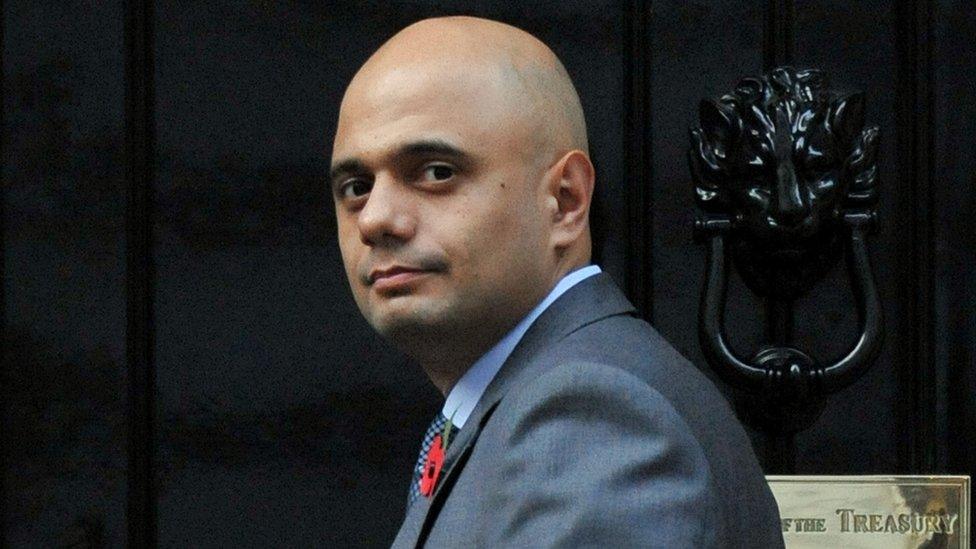Green Investment Bank privatisation 'threat to green identity'
- Published

The UK's "green" bank should not be privatised unless the government can ensure it keeps its environmental purposes, a committee of MPs has said.
Plans to part-privatise Green Investment Bank (GIB) were announced by Business Secretary Sajid Javid in June.
The House of Commons' Environmental Audit Committee warned this could cause the bank to lose its "green identity".
But the government says "the time is right" for the bank to be privatised.
A spokesman from the Department for Business, Innovation and Skills said: "We have always been clear that GIB was designed with a view to a possible transfer to the private sector.
"Having already proved itself, the time is right to move it into private ownership where it can raise capital, grow and boost investment in the green economy while minimising the need for taxpayer support.
"We will look carefully at the committee's recommendations and respond in due course."
The committee disagreed, saying proposals to privatise the GIB could "damage its reputation" and "undermine its leadership role in the green economy".
Decision 'appears rushed'
The Edinburgh-based GIB - thought to be the first of its kind - has invested £2.3bn of public money in 60 projects, with a total value of more than £10bn, since it was launched in 2012.
However, there are restrictions on its borrowing and Mr Javid hopes that full access to the capital markets will increase its lending powers.
The bank's projects are required to make a contribution to one of its five "green purposes": reducing greenhouse gas emissions, increasing the efficiency of the use of natural products, protecting the natural environment or biodiversity and promoting environmental sustainability.
But the projects are also required to provide market-based commercial returns.
Mr Javid has argued that privatisation would give the bank greater access to capital by removing restrictions on its borrowing and freeing it from EU state aid rules.
But in its report, the Environmental Audit Committee argued privatisation could encourage the bank to shift its focus towards more conventional projects and away from more complex schemes which struggle to raise funding elsewhere.
It said if the government could not guarantee the bank's green purposes it should not be privatised.

Business Secretary Sajid Javid has argued that privatisation would give the bank greater access to capital
Committee chairman Huw Irranca-Davies said: "The Green Investment Bank has done a great job of getting capital flowing to the kind of innovative green projects that sometimes struggle to secure financial backing.
"The decision to privatise the bank appears rushed and ministers have not produced convincing evidence that it will achieve its aims better in the private sector."
Green Party MP Caroline Lucas, who is a member of the committee, said there were two main concerns.
"There can be no guarantee it will continue to invest in specifically-green projects," she told BBC Radio 4's Today programme.
"And its role in overcoming market failure would also be undermined because right now the bank is set up to put public money into projects which would not otherwise attract private investment on its own because they are too risky, the technologies are too new, or the investment period is too long."
The committee said the government's proposed protections of the bank's green purposes after privatisation were "not robust enough", as ministers were relying on assurances from potential shareholders.
It also recommended that the government should retain a minority stake in the bank if it is sold and should establish a "special share" to enable it to protect its green purposes.
But it also urged ministers to produce a business case and assessments of the likely impact of the sale, along with an evaluation of the benefits of alternative options.
Mr Irranca-Davies added: "We need a Green Investment Bank that has the freedom to operate in ways that conventional commercial banks cannot.
"The green purposes of GIB must not only be properly protected - they should be strengthened."
- Published25 June 2015
